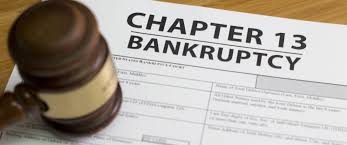 |
15 TIPS TO FINDING FORMER TENANTS TO COLLECT |
One of the most asked questions that I receive from the landlords is "How do I find the former tenant to collect?" After collecting on 96 judgments I had to have a strategy to how I was going to find the former tenants and collect. They can run but they can't hide!
Gary has followed the U-Haul van to their next address
They always tell us they are moving to Texas
Usually Texas is about 8 blocks away!
1. Courthouse website:
You will put the former tenants name in the search by name for cases. I would suggest putting the search under the defendant and plaintiff. I caught a former tenant as a plaintiff in a child support case. You will check each case to see what cases are active. If we can find active cases then we can usually find the address of service and a court hearing date. Numerous times I have had the licensed process server waiting outside the court hearing door with documents to serve.
2. Peoplesmart:
I have found many former tenants addresses from this website. You have to pay but I feel it is worth it. One of my landlords that purchased the Collect Back Rent Training Course had a hundred tenants that had moved out and owed him money. He had been a landlord for 20 years with over 300 apartments. He was going to take them all to Small Claims court so he employed me to find the addresses. I found 72 good addresses out of the 100 names he gave me. Peoplesmart was a great asset with Google and the courthouse website.
3.Google:
Google the name and the family members on the rental application.
4. Family members:
This is one of the places that the former tenant can retreat to. It could be for a lack of money, good place to hide or last resort. There have been times I have sent the licensed process server to a family member's home to serve the former tenant. They have given the process server the address where he/she is currently living. They didn't want someone constantly banging on the door trying to serve documents.
5. Social Media:
This is a good tool to find the activity of the former tenant. I had a judgment against a tenant for $2,500 and I had remembered she was always going to the gym. I noticed that she had posted on her social media account that she worked out at a local health club every Tuesday evening. I gave the valuable information to my licensed process server and bingo!
6. White pages:
I have found some addresses from the white pages. The tenants usually have a cell phone and white pages lists landline numbers. But it is definitely worth the try. This site is excellent to find landlords name and addresses when you start buying judgments.
7. Yahoo People Search:
I haven't used this website but some of the Collect Back Rent members have found addresses.
8. Dog Pile:
Debe purchased the Collect Back Rent Training Course For Landlords when I spoke in Indiana. I knew right from the start that she was going to be a real go-getter. She had a judgment on a former tenant for $1,700 and she wanted her money. She found an address of a former tenant on dog pile. The former tenant had 2 dogs (one on the application) and left big piles in the yard when they moved! She used her gut feeling and there was the address!
9. Zaba Search:
This is a good website-I have found about 5 addresses from this site.
10. MUGSHOOTS.COM:
Poetry in motion when you google the former tenants name on this site. I have scrolled down and suddenly there is the tenant's mug. Serving court documents to the former tenant in the jail is an easy task. Unbelievable!
11. DEPARTMENT OF MOTOR VEHICLES
12. LOCAL TRAFFIC
13. BANKRUPTCY COURT
14. COUNTY RECORDER OFFICE
15. STATE BUSINESS LICENSE




























